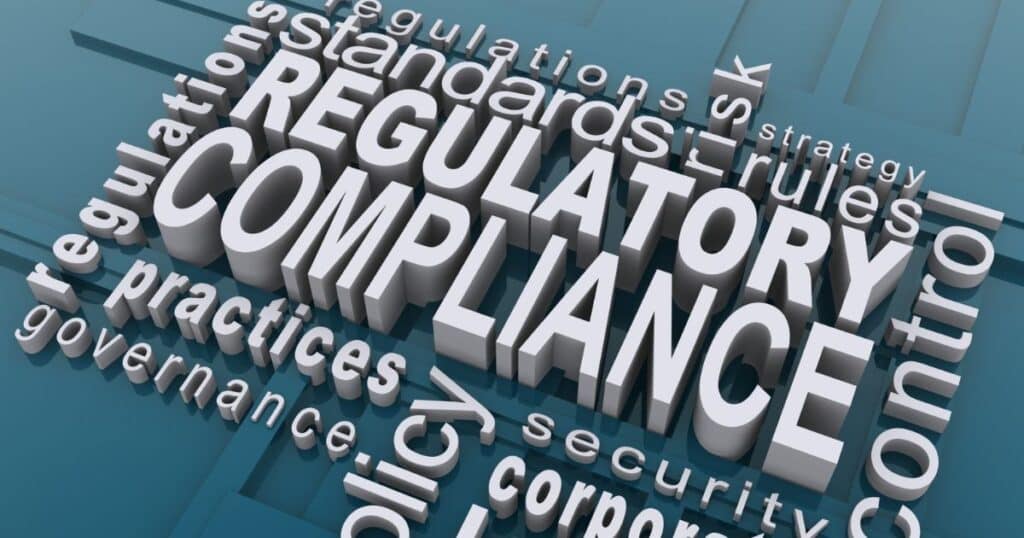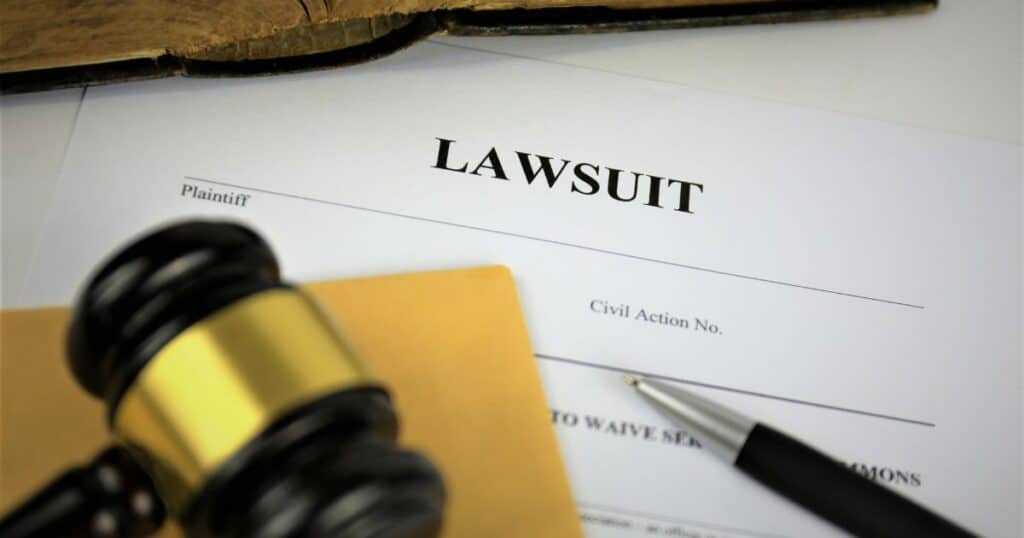The 72 Sold lawsuit has stirred quite a buzz in the real estate world. It’s a tangled web involving allegations of shady practices, disgruntled buyers, and a whole lot of legal jargon. But don’t worry, we’re here to break it down for you in plain English.
What is 72 SOLD?
Before we get into the nitty-gritty, let’s start with the basics. 72 Sold is a real estate company that promises to sell your home in a flash – like, eight days or less kind of fast. Founded in 2018 by Greg Hague, a real estate investor with a knack for thinking outside the box, 72 Sold operates in 38 markets across the United States.
Their secret sauce? An auction-like approach that’s all about creating a frenzy of buyer interest through aggressive marketing campaigns. By partnering with big names like Keller Williams, they aim to streamline the traditional home-selling process and make it lightning-fast.
Parties Involved
Now, let’s introduce the key players in this legal drama:
Homeowners: These are the folks who just want to sell their properties quickly and efficiently. 72 Sold: The real estate company at the center of it all, offering their speedy selling program. Affiliated Real Estate Agents: The boots on the ground, partnering with 72 Sold to market and sell properties nationwide. Potential Buyers: The ones looking to snag a property within that promised eight-day window.
It’s like a well-choreographed dance, with each party playing a crucial role in making 72 Sold’s unique selling process work (or so they claim).
Allegations and Claims

Here’s where things get a little messy. The lawsuit against 72 Sold is packed with some serious allegations that have the real estate world buzzing:
Embezzlement claims against Gary Keller: Yep, the big kahuna himself is accused of misusing funds collected from franchisees for personal gain and to bankroll other business ventures, including 72 Sold. Talk about a conflict of interest!
False advertising tactics: Some customers claim 72 Sold failed to deliver on their promise of selling homes within eight days, leaving them high and dry. Ouch.
It’s a tangled web of accusations, from financial misconduct to broken promises, that has everyone questioning the company’s ethics and business practices.
Legal Proceedings
When allegations like these surface, the legal system springs into action. Cue the courtroom drama!
Complex legal issues are on the table, ranging from embezzlement to false advertising and coercion. Both sides will be presenting evidence, testimonies, and legal arguments to sway the court in their favor.
The outcome of these proceedings could have far-reaching implications for 72 Sold and the real estate industry as a whole. It’s a high-stakes game where reputations, regulations, and potentially hefty fines are on the line.
Impact and Implications
Depending on how this legal saga unfolds, the ripple effects could be massive:
If 72 Sold is found guilty, it could be a major blow to their reputation and erode trust among clients and partners. Say goodbye to market share and hello to potential fines and sanctions.
On the flip side, if they manage to clear their name, they could emerge relatively unscathed and reaffirm their position in the market.
Either way, this lawsuit is shining a spotlight on shady real estate practices, which could prompt regulatory bodies to crack down and enforce stricter compliance measures across the board.
Responses and Defense
Of course, 72 Sold isn’t taking these allegations lying down. You can bet they’ll mount a vigorous defense to protect their business interests and reputation.
Their strategy? Likely a combination of refuting claims, presenting evidence of ethical practices, highlighting client satisfaction, and enlisting legal experts to counter any negative fallout.
It’s a high-stakes game of damage control, with 72 Sold fighting tooth and nail to emerge victorious.
Settlements or Verdict

With so much on the line, everyone’s waiting with bated breath to see how this legal showdown will play out. Will there be a settlement, avoiding the risks and costs of a prolonged trial? Or will a verdict be handed down, potentially setting new precedents for the industry?
Either way, the terms of any settlement or the verdict itself will have massive implications not just for 72 Sold, but for buyers, sellers, and real estate professionals across the board.
Parties Involved
Let’s take a closer look at the key players embroiled in this legal tussle:
72 Sold itself, the nationwide home-selling program based in Scottsdale, Arizona, founded by Greg Hague. Individuals like Jonathan Dupree, Marc King, Jason Abrams, and Matt Green, who are presumably tied to 72 Sold’s operations or management.
It’s a tangled web of parties, each with their own stake in the game and potentially damning allegations to face.
Allegations And Claims
Beyond the embezzlement and false advertising claims we’ve already covered, the lawsuit levels some other serious accusations:
Misuse of collected fees: It’s alleged that funds collected from franchisees were misused for purposes beyond their intended use, benefiting individuals like Gary Keller and his son John.
Operating outside defined usage: Gary Keller is accused of operating outside accepted practices, using fees for personal gain and to fund other businesses, including his stake in 72 Sold.
Coercion and compliance: Franchisees reportedly faced pressure to direct their funds toward other Keller-owned entities, potentially straining their finances and limiting their independence.
It’s a messy web of alleged misconduct, with accusations ranging from financial impropriety to breaches of ethics and coercion.
Allegations Against the Developer

Speaking of misconduct, let’s zoom in on the allegations leveled directly at the developer, Gary Keller:
Misuse Of Collected Fees
Remember those claims of funds being misused for personal gain and to fund other businesses? Well, Keller is right in the crosshairs.
Operating Outside Defined Usage:
It’s alleged that Keller operated outside accepted norms, using franchisee fees to bankroll endeavors like 72 Sold, where he has a significant stake.
Coercion And Compliance:
Franchisees purportedly faced pressure to funnel their funds into other Keller-owned entities, potentially hampering their financial well-being and autonomy.
It’s a laundry list of accusations that paint Keller as a key figure in the alleged misconduct surrounding 72 Sold.
Claims From The Buyers
But the allegations don’t stop there. Buyers have their own set of grievances to air:
False Advertising:
Some claim 72 Sold’s marketing promises don’t align with the reality they experienced, including instances where properties didn’t sell within the advertised eight-day window.
Failure To Deliver:
There are complaints that 72 Sold simply didn’t follow through on their commitments, leaving buyers frustrated and dissatisfied.
It’s a harsh reality check for those who bought into 72 Sold’s speedy selling pitch, only to be left feeling duped and disappointed.
Legal Proceedings In Motion
With so many allegations flying, it’s no surprise that legal proceedings are in full swing. We’re talking formal complaints filed in court, investigations by regulatory bodies, and a whole lot of legal wrangling.
These proceedings aim to get to the bottom of the grievances and determine if any laws or regulations were violated. It’s the formal avenue for seeking justice and holding 72 Sold accountable for any wrongdoing.
How 72 Sold Lawsuit Works
But how exactly does this legal juggernaut work? In a nutshell, it’s all about aggrieved parties filing complaints that outline specific allegations of misconduct or shady dealings by 72 Sold.
From there, the legal machinery kicks into gear:
Evidence is gathered and presented. Witness testimonies are heard. Legal arguments are made by both sides.
Ultimately, the courts will evaluate all the information and make a judgment based on applicable laws and regulations.
Depending on the outcome, there could be settlements, verdicts, or other legal resolutions that determine the consequences for 72 Sold and the parties involved. It’s a complex process, but one designed to address disputes and seek justice.
Keep Reading
Verification Process
Of course, before any verdicts are handed down, there’s a crucial verification process to ensure the claims hold water.
When a complaint is filed, legal authorities and regulatory bodies launch investigations to collect evidence and documents related to the case. This evidence is then meticulously examined to either support or refute the allegations.
It’s a thorough process aimed at separating fact from fiction and ensuring any legal actions are based on solid ground.
Implications For Buyers
For buyers navigating the real estate market, this lawsuit serves as a wake-up call on the importance of due diligence and scrutiny when engaging in property transactions, especially when third-party entities like 72 Sold are involved.
Buyers may become more vigilant in evaluating the terms, conditions, and promises made during the sales process, scrutinizing any potential red flags or inconsistencies that could signal deceptive practices.
The allegations of misleading marketing tactics and broken promises have highlighted the need for transparency and accountability in the real estate industry, empowering buyers to be more cautious and proactive in protecting their interests.
Legal Ramifications
The legal ramifications of the 72 Sold lawsuit could have far-reaching consequences that extend beyond the company itself. If the allegations are proven true, it could serve as a catalyst for regulatory bodies to investigate similar cases and enforce stricter compliance measures across the real estate industry.
Potential legal consequences may include:
- Fines or penalties for deceptive practices or breaches of consumer protection laws.
- Tighter regulations and oversight on real estate marketing claims and advertising.
- Increased scrutiny on commission structures and fee transparency.
- Heightened accountability for real estate companies and professionals.
The lawsuit has brought to light potential loopholes or areas of concern in existing real estate laws and regulations, prompting calls for reform and stricter enforcement to protect consumer rights and maintain ethical industry standards.
Buyers’ Perspective
From the buyers’ perspective, the 72 Sold lawsuit has raised significant concerns and considerations when navigating the real estate market. Buyers may become more cautious and vigilant when engaging with real estate companies, particularly those implicated in allegations of unethical conduct.
The claims of misleading marketing practices and unfulfilled promises have eroded trust, prompting buyers to conduct more thorough due diligence and seek assurances regarding the integrity of the transaction process.
Buyers may demand greater transparency from real estate professionals, scrutinizing contracts, commission structures, and any potential conflicts of interest. They may also seek out reviews, testimonials, and third-party verification to validate the claims and reputations of real estate companies before committing to a transaction.
Developer Practices
The allegations against the developer, Gary Keller, have cast a spotlight on the business practices and ethics of key players in the real estate industry. The lawsuit suggests that Keller may have engaged in misleading marketing tactics, misrepresented property values, and failed to fulfill promises made to buyers and franchisees.
These accusations have raised concerns about the potential for conflicts of interest, misuse of funds, and a lack of transparency in the operations of real estate companies and their affiliated entities.
Developers and real estate professionals may face increased scrutiny and pressure to demonstrate ethical business practices, transparent financial dealings, and a commitment to delivering on their promises to clients and partners.
72 SOLD Commission and Fees
One of the significant aspects of the 72 Sold lawsuit revolves around the commissions and fees charged by the company. Allegations suggest that 72 Sold may have engaged in deceptive practices related to its commission structure and fees, potentially leading to financial harm for buyers and sellers.
Buyers and sellers involved in real estate transactions expect transparency regarding the commissions and fees charged by brokers and agents. However, the lawsuit has raised concerns that 72 Sold may have misrepresented or hidden certain fees, leading to unexpected costs for clients.
This issue has highlighted the need for increased transparency and clear communication about commission structures, fees, and any additional charges associated with real estate transactions. Buyers and sellers may demand greater clarity and detailed breakdowns of all costs upfront to make informed decisions and avoid potential financial surprises.
Regulatory Oversight and Industry Standards

In the wake of the 72 Sold lawsuit, there is a growing call for enhanced regulatory oversight and the establishment of stricter industry standards within the real estate sector. The allegations of unethical practices, misleading advertising, and financial misconduct have exposed potential gaps and weaknesses in existing regulations and enforcement mechanisms.
Regulators and industry bodies may respond by implementing the following measures:
Strengthening Advertising And Marketing Regulations
Strict guidelines and penalties for false or misleading claims in real estate marketing and advertising campaigns could be introduced to protect consumer interests and maintain transparency.
Enhancing Financial Oversight And Auditing
Increased scrutiny and regular audits of real estate companies’ financial practices, including commission structures, fee allocation, and fund management, could help detect and prevent potential misuse of funds.
Establishing Codes Of Conduct And Ethical Standards
Comprehensive codes of conduct and ethical guidelines could be developed and enforced across the industry, setting clear expectations for professional behavior, transparency, and accountability.
Improving Consumer Protection Mechanisms
Strengthening consumer protection laws and establishing dedicated channels for addressing grievances and resolving disputes could empower buyers and sellers to seek recourse against unethical or deceptive practices.
Promoting Industry Self-Regulation
Encouraging and supporting industry-led initiatives for self-regulation, such as certification programs, ethical training, and peer review processes, could foster a culture of accountability and professionalism within the real estate sector.
By addressing these areas through regulatory reforms and industry-wide efforts, the goal is to restore public confidence, promote ethical business practices, and create a more transparent and trustworthy real estate market for all stakeholders.
Impact on Real Estate Market Dynamics
The 72 Sold lawsuit has the potential to reshape various aspects of the real estate market dynamics, influencing buyer and seller behavior, industry practices, and the overall perception of the sector. Here are some potential impacts:
Shifting Buyer Preferences
Buyers may become more cautious and discerning when selecting real estate companies and professionals to work with. Companies with a reputation for transparency, ethical practices, and customer satisfaction may gain a competitive advantage, while those implicated in controversies or legal disputes could face challenges in attracting and retaining clients.
Increased Scrutiny Of Marketing Claims
Buyers and sellers may approach marketing claims and promises made by real estate companies with greater skepticism, demanding verifiable evidence and proof of past performance. This could lead to a shift toward more transparent and substantiated marketing practices within the industry.
Emphasis On Due Diligence
Both buyers and sellers may place greater emphasis on conducting thorough due diligence before entering into real estate transactions. This could involve researching company reputations, reviewing contracts and fee structures in detail, and seeking third-party advice or legal counsel to ensure their interests are protected.
Emergence Of Alternative Business Models
The controversy surrounding traditional real estate practices and commission structures may create opportunities for the emergence of alternative business models or disruptive approaches.
Companies that prioritize transparency, affordability, and consumer-centric practices could gain traction in the market.
Regulatory And Industry Reform
As mentioned earlier, the lawsuit could catalyze regulatory reforms and industry-wide initiatives to enhance consumer protection, establish ethical standards, and improve oversight mechanisms. These changes could lead to a more regulated and accountable real estate market, benefiting both buyers and sellers in the long run.
Overall, the 72 Sold lawsuit has the potential to reshape the real estate market dynamics by prompting a shift towards greater transparency, accountability, and consumer-centric practices, ultimately benefiting all stakeholders and fostering a more trustworthy and ethical industry environment.
Conclusion
The 72 Sold lawsuit has brought to light critical issues within the real estate industry, prompting calls for increased transparency, accountability, and consumer protection. It has the potential to reshape market dynamics by influencing buyer and seller preferences, scrutinizing marketing claims, emphasizing due diligence, and encouraging alternative business models.
Regulatory reforms and industry initiatives may emerge to establish ethical standards, strengthen oversight mechanisms, and restore public confidence.
Ultimately, the lawsuit could catalyze positive changes, leading to a more trustworthy and consumer-centric real estate market that prioritizes ethical practices, clear communication, and safeguarding the interests of all stakeholders.
Frequently Asked Question
What Actions Can Buyer And Sellers Take To Protect Themselve Amidst The 72 Sold Lawsuit?
Buyers and sellers can protecte themselves by conducting thorough due diligence, seeking legal advice, and carefully reviewing all documentation related to their transactions with 72 Sold.
What Are The Potentiale Long-Term Consequences Of The 72 Sold Lawsuit For The Real Estate Industry?
The 72 Sold Lawsuit could lead to increased regulatorye scrutiny, changes in industry practices, and heightened consumer awareness about the risks associated with real estate investments.
How Mighte The Outcome Of The 72 Sold Lawsuit Impact Consumer Confidence In The Real Estate Market?
The outcome of the 72 Sold Lawsuit could either bolster or erode consumer confidence in the real estate market, depending on whether the allegations are proven true and how the industry responds to any resulting changes.
What Steps Can Regulators And Policymakers Take To Address Issues Raised By The 72 Sold Lawsuit?
regulators and Policymakers can take steps such as strengthening Ponsumer protection laws, enhancing oversight of real estate transactions, and promoting greater transparency in the industry.
How Have Other Similar Lawsuit In The Past Influenced The Real Estate Market?
Past lawsuits involving Allegations of fraud or deceptive, practices have led to reforms in the real estate industry, including changes in regulations, increased disclosure, requirements, and greater accounting for market participants.







